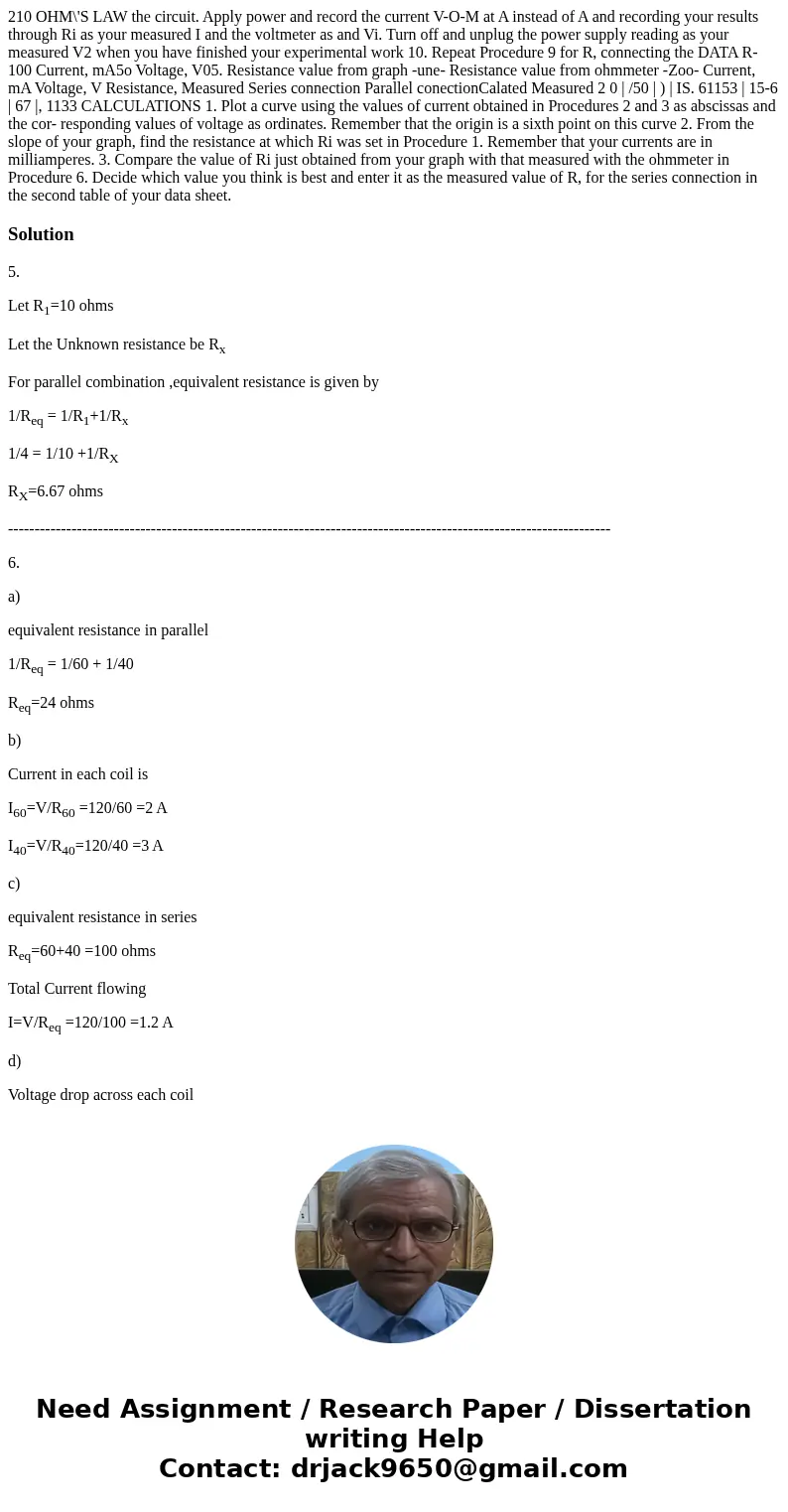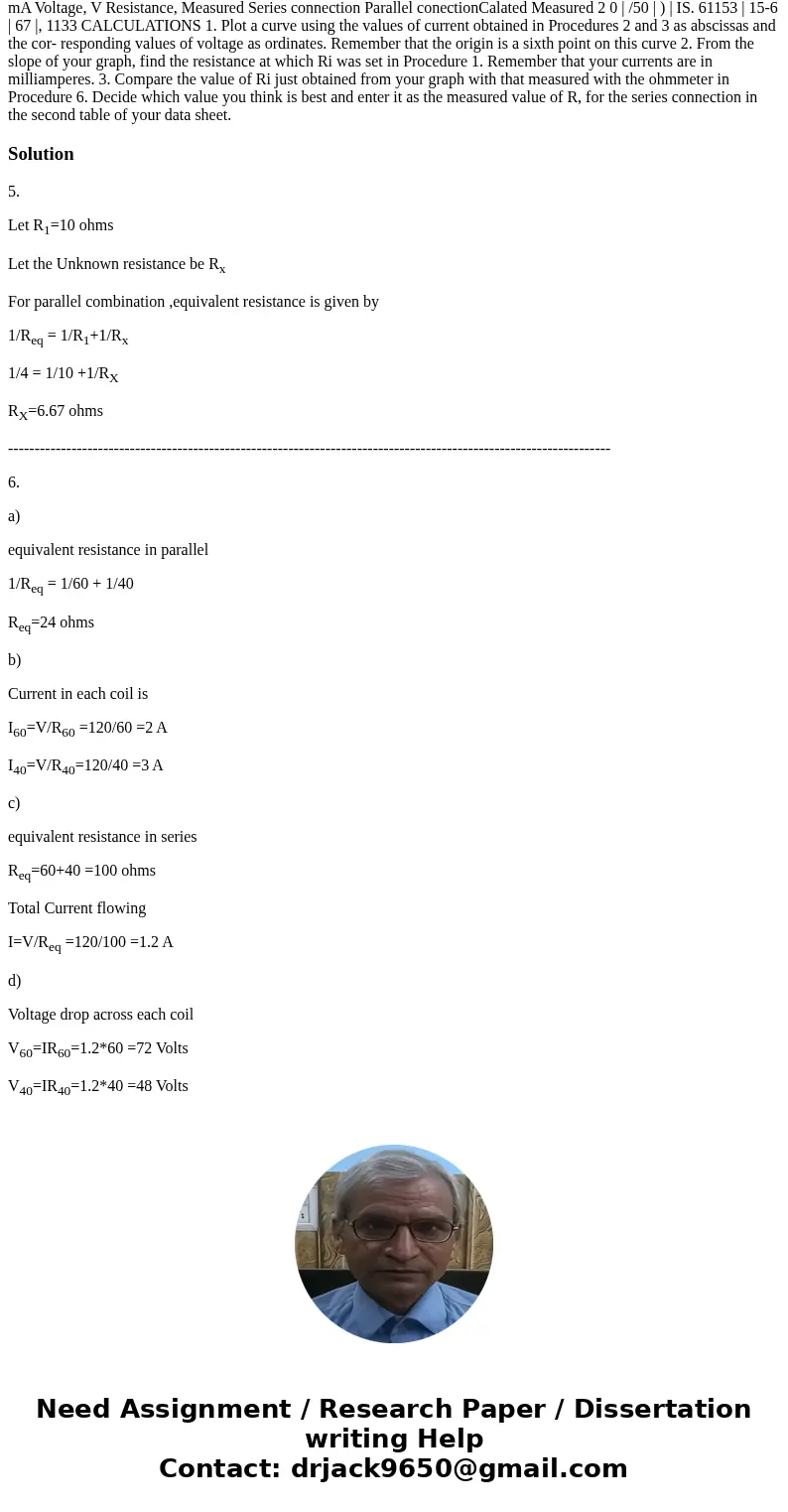210 OHMS LAW the circuit Apply power and record the current
210 OHM\'S LAW the circuit. Apply power and record the current V-O-M at A instead of A and recording your results through Ri as your measured I and the voltmeter as and Vi. Turn off and unplug the power supply reading as your measured V2 when you have finished your experimental work 10. Repeat Procedure 9 for R, connecting the DATA R-100 Current, mA5o Voltage, V05. Resistance value from graph -une- Resistance value from ohmmeter -Zoo- Current, mA Voltage, V Resistance, Measured Series connection Parallel conectionCalated Measured 2 0 | /50 | ) | IS. 61153 | 15-6 | 67 |, 1133 CALCULATIONS 1. Plot a curve using the values of current obtained in Procedures 2 and 3 as abscissas and the cor- responding values of voltage as ordinates. Remember that the origin is a sixth point on this curve 2. From the slope of your graph, find the resistance at which Ri was set in Procedure 1. Remember that your currents are in milliamperes. 3. Compare the value of Ri just obtained from your graph with that measured with the ohmmeter in Procedure 6. Decide which value you think is best and enter it as the measured value of R, for the series connection in the second table of your data sheet. 

Solution
5.
Let R1=10 ohms
Let the Unknown resistance be Rx
For parallel combination ,equivalent resistance is given by
1/Req = 1/R1+1/Rx
1/4 = 1/10 +1/RX
RX=6.67 ohms
------------------------------------------------------------------------------------------------------------------
6.
a)
equivalent resistance in parallel
1/Req = 1/60 + 1/40
Req=24 ohms
b)
Current in each coil is
I60=V/R60 =120/60 =2 A
I40=V/R40=120/40 =3 A
c)
equivalent resistance in series
Req=60+40 =100 ohms
Total Current flowing
I=V/Req =120/100 =1.2 A
d)
Voltage drop across each coil
V60=IR60=1.2*60 =72 Volts
V40=IR40=1.2*40 =48 Volts


 Homework Sourse
Homework Sourse